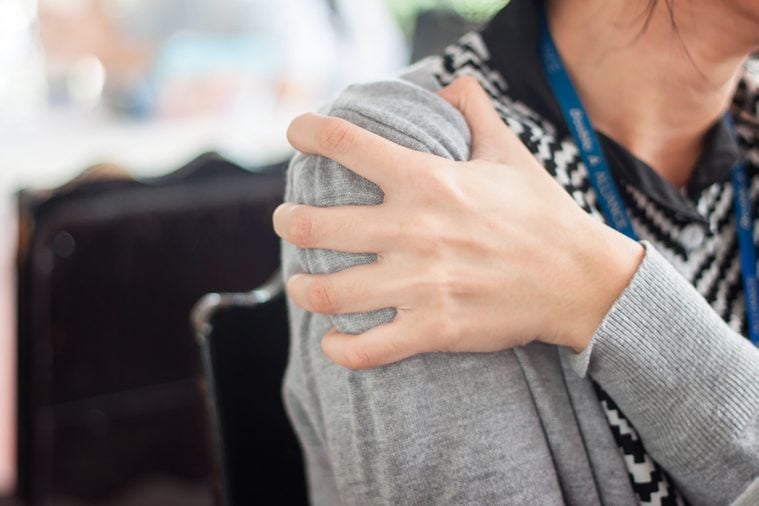
Why are my muscles sore or in pain?
In many cases, muscle soreness is caused by micro-tears in the muscles. These tears are typically a result of exercise or overexertion of the muscles, something you may hear referred to as DOMS (delayed onset muscle soreness). DOMS reaches its peak 24 to 72 hours after activity and disappears within three to five days, according to the American College of Sports Medicine. As you exercise more, the muscles in your body will rebuild stronger so that you won’t get as sore next time around. There are some at-home treatments that can help you shake off the soreness.
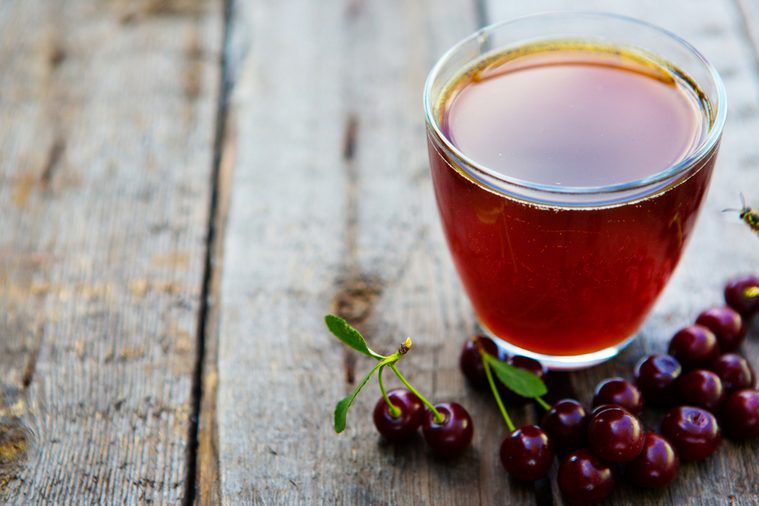
Cherry juice
Tart cherry juice contains very high levels of anthocyanins, antioxidant compounds that help reduce muscle soreness and discomfort. In one study on how to relieve sore muscles, runners who drank two bottles of tart cherry juice for a week before a race and on race day experienced less post-race pain compared to a placebo group. Other research on marathon runners suggests that cherry juice’s anti-inflammatory properties speed recovery.
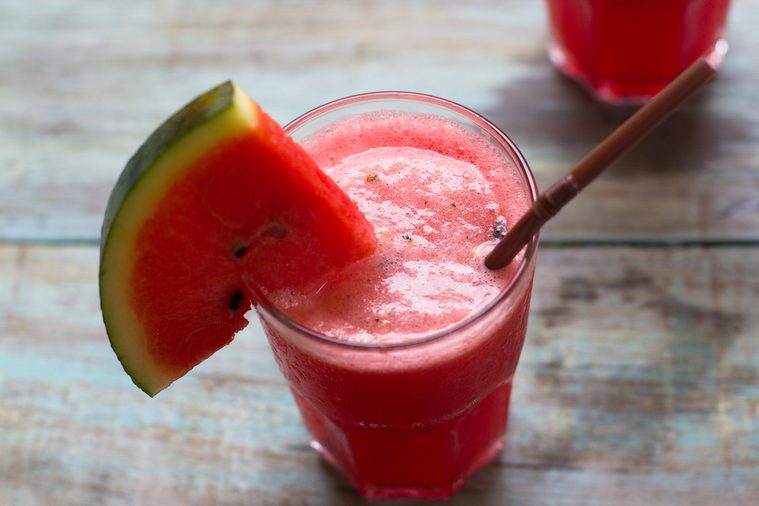
Watermelon juice
If you need something sweeter, opt for a little watermelon juice. The fruit packs an amino acid called L-citrulline, which may support workout recovery. As a very small study on how to relieve sore muscles published in the Journal of Agricultural and Food Chemistry found, seven athletes who drank about 16 ounces of watermelon juice reduced muscle soreness a day after an intense exercise bout.
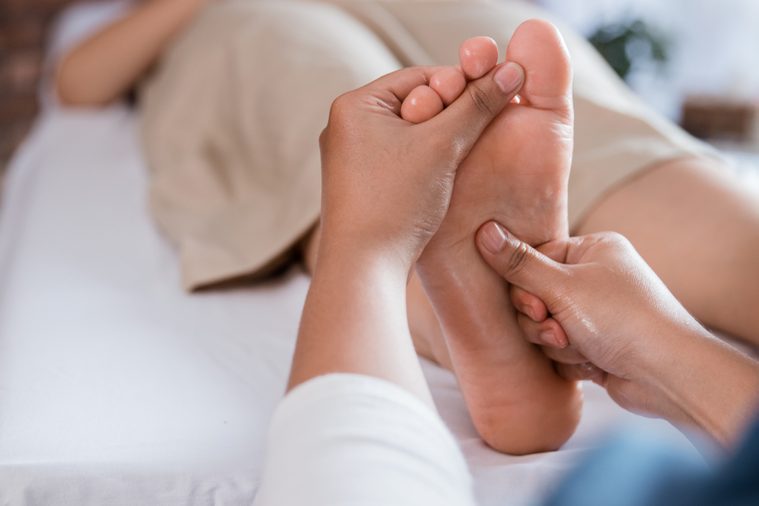
Massage
Even if your muscles are sore, it’s not too late to find relief. A study in the Journal of Exercise Rehabilitation found that leg massage decreased pain intensity and helped restore participants’ normal gait (when you’re sore, you’ll walk funny). Massage not only feels good, but it bolsters circulation to tissues to reduce inflammation. It doesn’t mean you need to shell out for an expensive massage session, either; there are easy ways to learn self-massage.
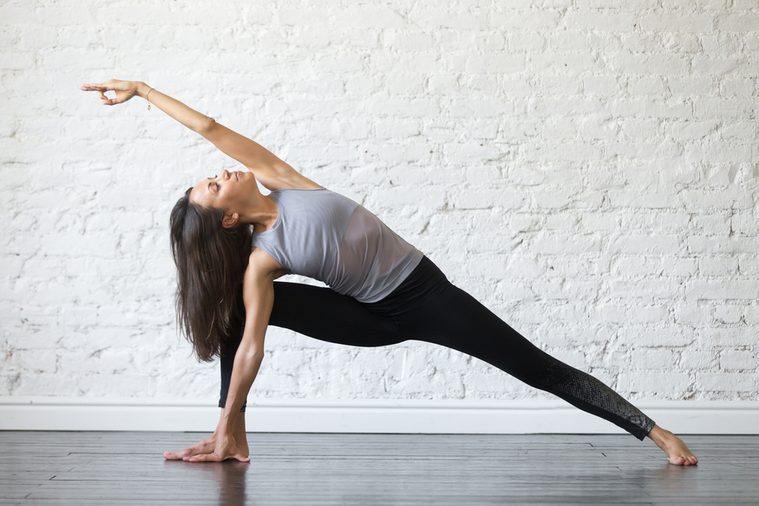
Movement
It can be tempting to just sit around when experiencing soreness caused by an intense workout, but that’s not how to relieve sore muscles. Soothe the stiffness by simply getting up and moving around or doing some stretches. Research shows “active recovery” is effective in helping to ease the tension and stiffness and stop the pain sooner.
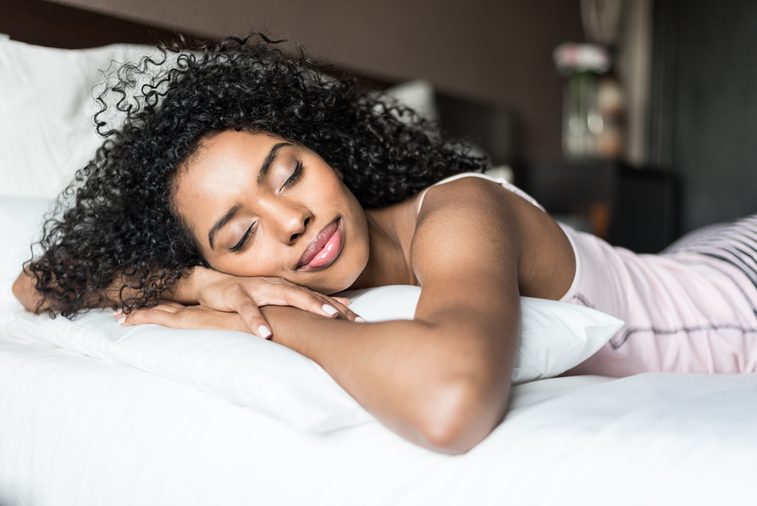
Sleep
Muscle soreness and pain are caused by tears in your muscles, and those tears need time to heal. Your body produces higher levels or growth hormone when you sleep, helping to rebuild your muscles. And researchers think that lack of sleep hinders muscle repair and recovery.
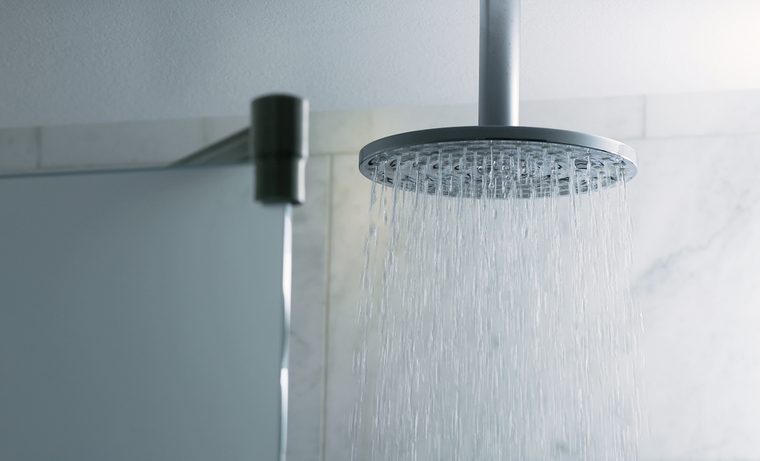
Heat
Simply applying heat to the affected area can help to reduce swelling, boost healing blood flow, and relax the muscles. This natural remedy for muscle pain is simple, quick, and easy. For muscle soreness or tightness, try a warm shower or bath. Start the heat therapy right after exercise—exercisers who completed a tough bout of squats and used heat wraps for eight hours post-workout experienced less muscle soreness, per 2017 research in the Clinical Journal of Sport Medicine. Sound too involved? Other research shows that moist heat wraps are better than applying dry heat—and can be used for just two hours (rather than eight) for similar benefits.
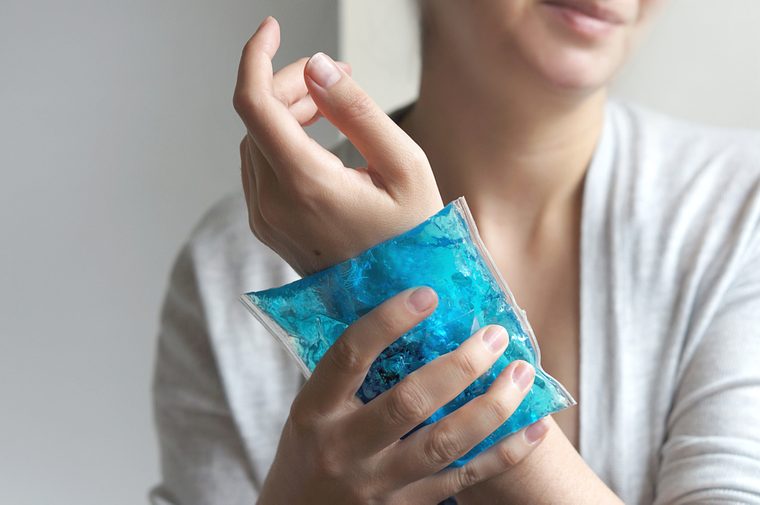
Cold
Called cryotherapy, cold applications probably don’t cool the muscle—but they may calm nerves that sense pain. A review of 36 studies from Belgian researchers found that ice packs and baths relieve DOMS. For muscle pain or swelling try putting an ice pack directly on the affected area for 13 minutes, according to the study.
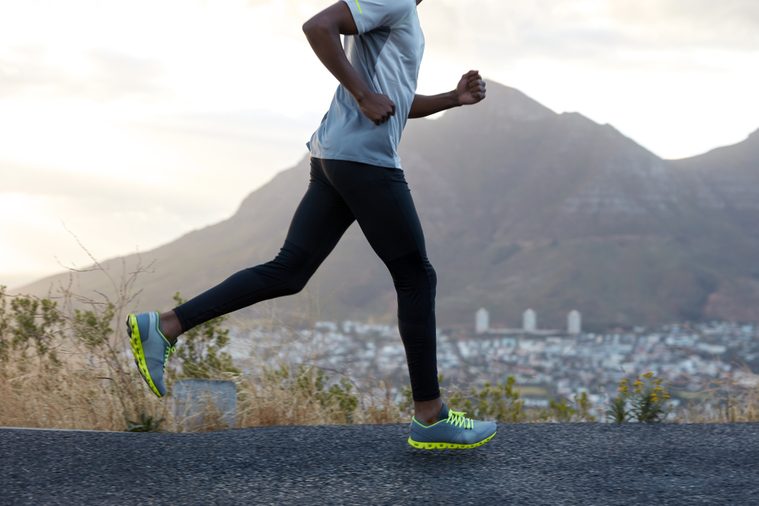
Compression
If you’re a serious exerciser and often looking at how to relieve sore muscles, you might want to invest in compression garments. In a small study (16 healthy males) in the Journal of Exercise Rehabilitation, half of the exercisers wore compression garments for 24 hours after a workout; the other half didn’t. On another day, they switched. After wearing compression gear, the men recovered faster and dealt with less DOMS. It’s unclear what’s really going on—the compression gear may help lower inflammation or reduce the movement that contributes to soreness. Here are some other natural ways to manage chronic pain.

Caffeine
You might try sipping a caffeinated beverage to give you the get-up-and-go to tackle a workout. In a small study of “low-caffeine-consuming” men, those who drank a caffeine drink an hour before a strength workout reported having less soreness two and three days later compared to a group that got a caffeine-free beverage. Bonus: The caffeine drinkers could also perform a greater number of reps.
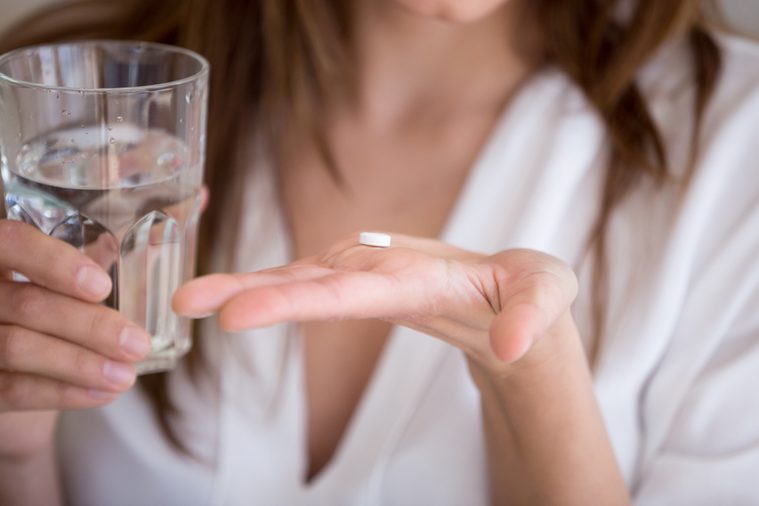
Anti-inflammatory medication
When muscle soreness gets really bad, some people pop an over-the-counter pain killer, like ibuprofen or aspirin. According to a review by Georgia State University researchers, these meds can be taken to ease soreness after exercise, particularly when it comes to lower-body workouts. Just don’t overdo it—there are real dangers to taking high doses of painkillers.

